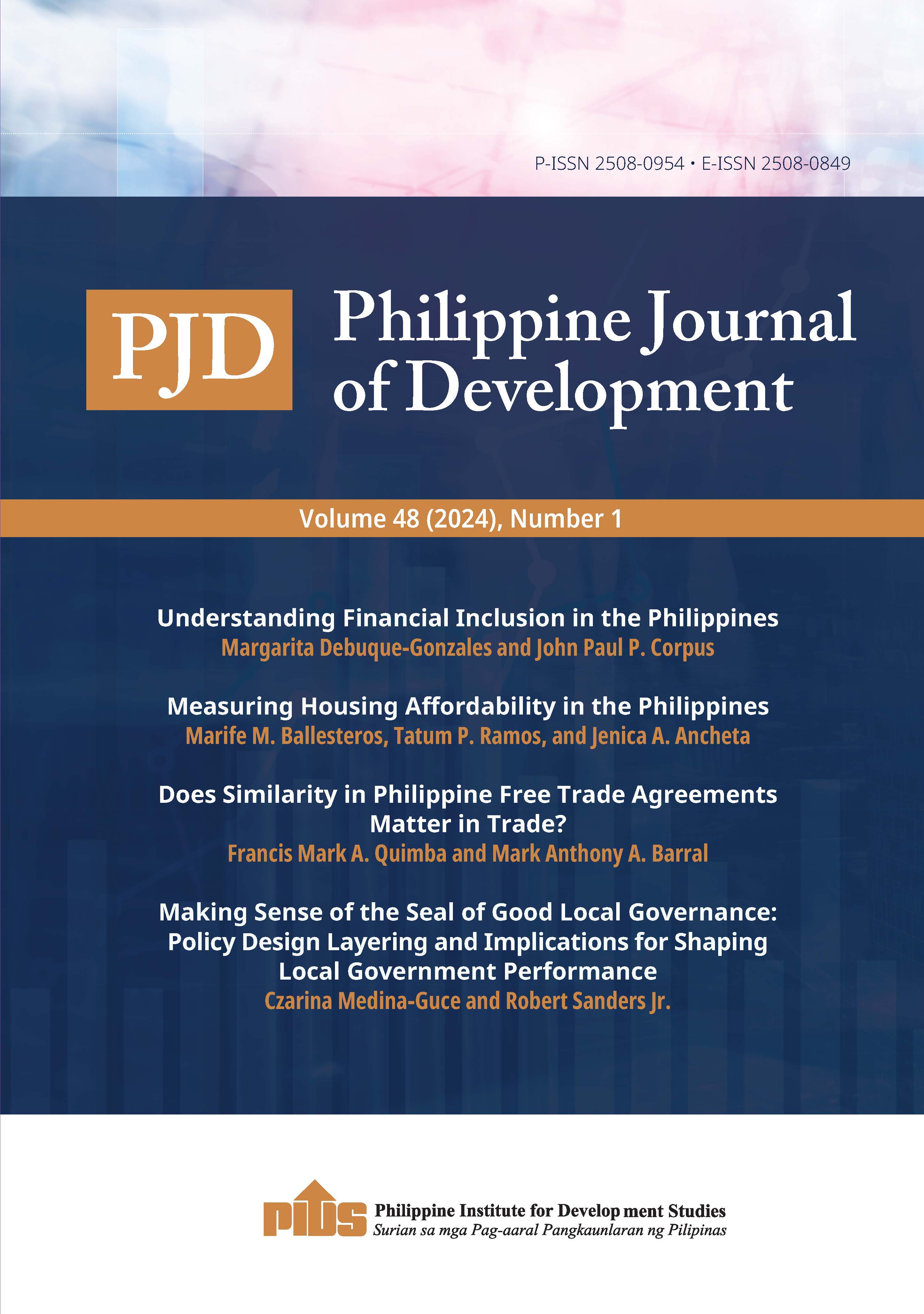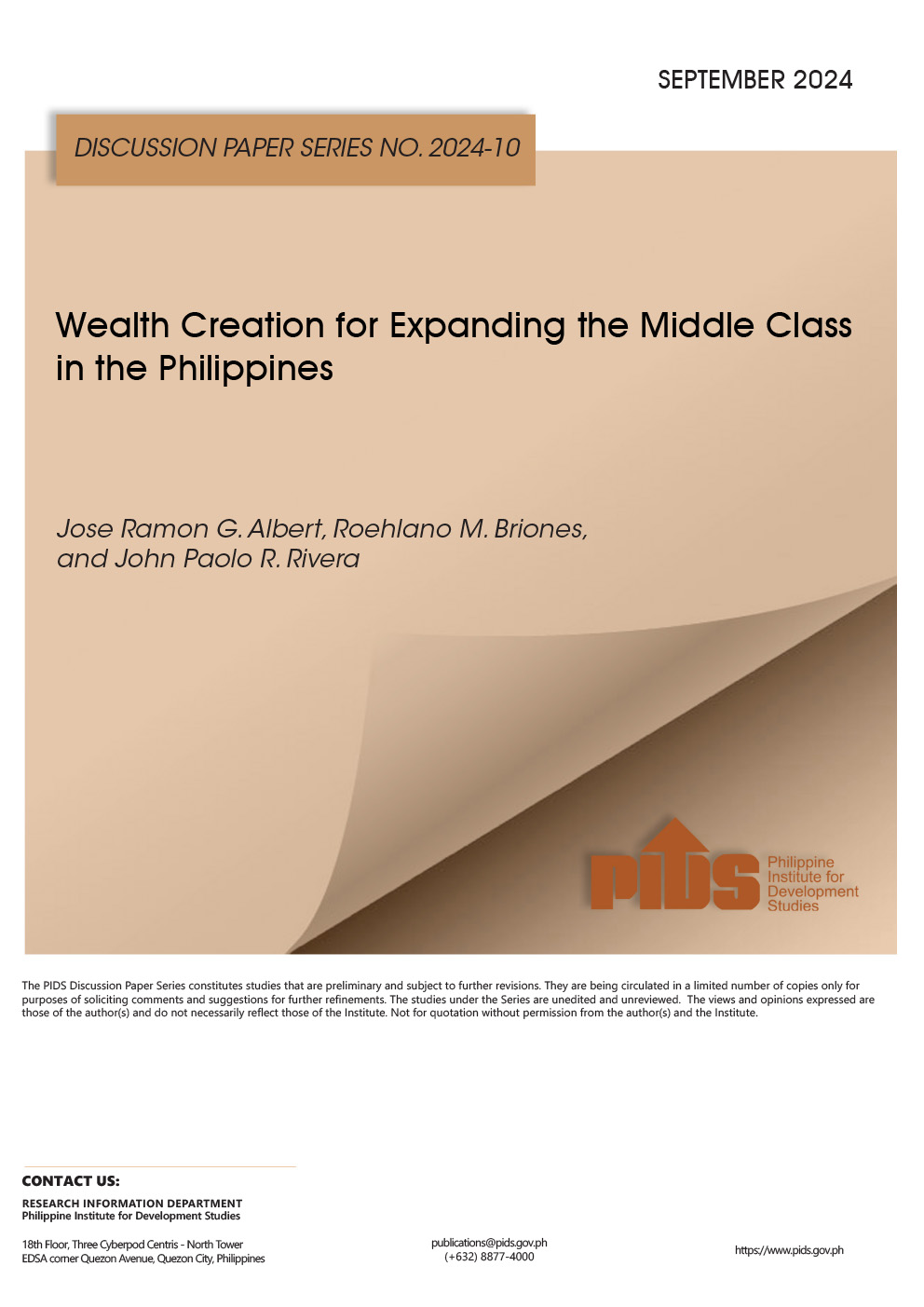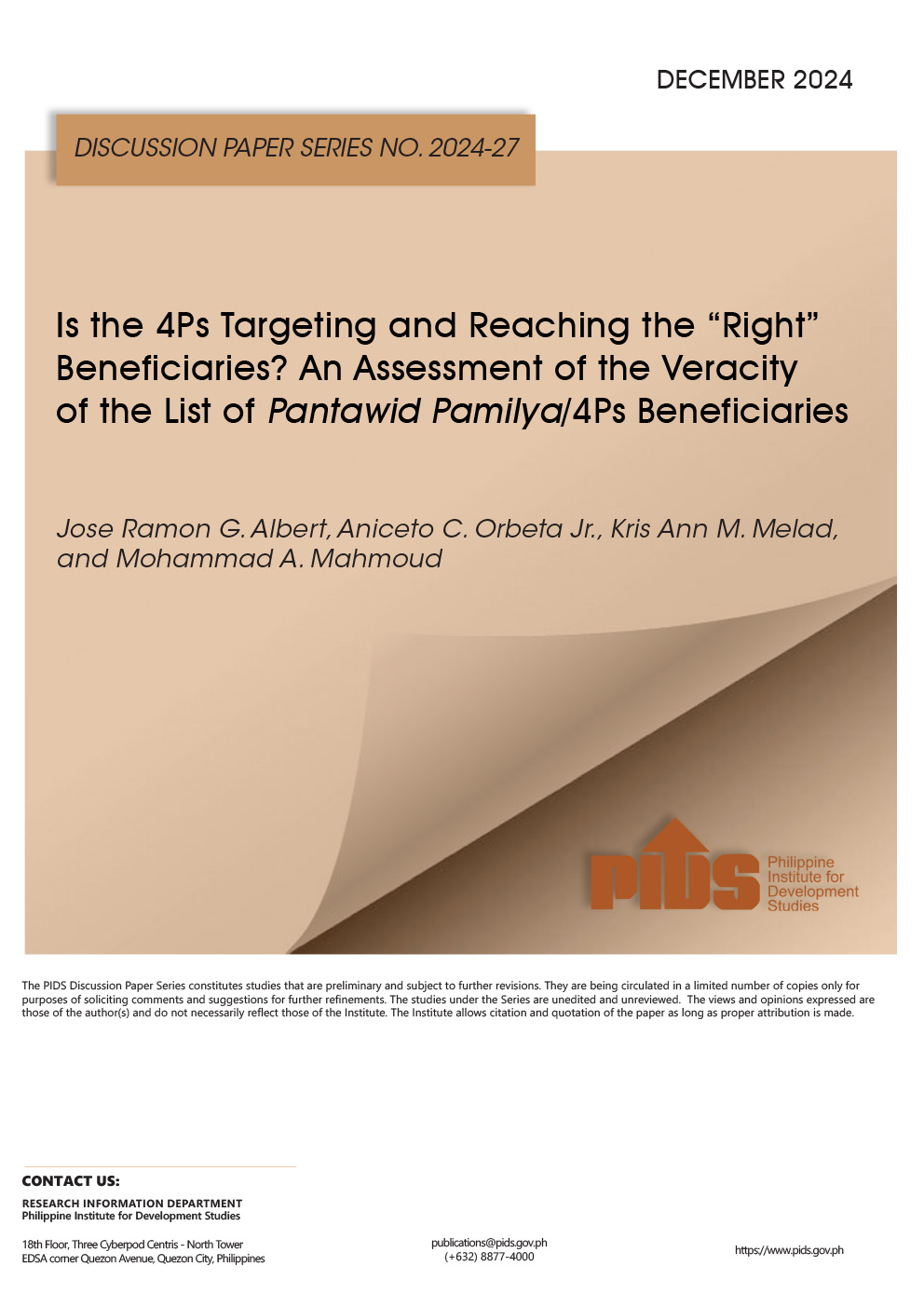A new study by a government think tank says restrictive labor market laws prevent micro, small, and medium enterprises from flourishing despite the various fiscal incentive programs the government provides for MSME development.
The Philippine Institute for Development Studies (PIDS) in the report underscored the good intentions of government to promote inclusive and sustainable growth and job creation through various incentives for MSMEs.
However, the study-entitled Unintended Consequences: The Folly of Uncritical Thinking asserted that these fiscal incentives have failed to achieve their goals “given the existing labor market regulations that emphasized job security instead of worker mobility.’
Once meant to cascade economic growth and ensure workers’ security, these regulations, the study said, have become restrictive for MSMEs, particularly with trade restrictions dismantled and new forms of social protection implemented.
For instance, it can be argued that high minimum wages, in conjunction with other laws, prevent firms from recouping their investments in training the young and inexperienced,” it said.
This results in firms not investing enough in on-the-job training for the youth who end up with inadequate skills formation and who are ultimately unemployable-contributing to high unemployment rate.”
The study authors added, “Today, the Labor Code fails to accommodate the proliferation of a significant number of MSMEs, and the interactions of these regulations with the minimum wages can weaken these smaller firms-at worst, cause them to close shop.”
Continued the paper, “Missed opportunities in creating better and more jobs are then observed when labor regulations are that inflexible.”
As a consequence, firms have been constrained to circumvent regulations, but “only the larger firms are able to manage these.”
What companies do, said the study authors, is to continue to avoid the huge costs involved in hiring workers by investing more in capital. Another option is to avoid labor market regulations by hiring or subcontracting part-time workers.
In effect, firms are able to reduce their total labor costs as they would no longer pay for the additional benefits that are offered to the permanent workers.”
These options, however, are more easily implemented by the larger firms as these require additional investments. Increasing capital and subcontracting other agencies to hire temporary workers will entail resources that are unavailable to MSMEs.
This then leads to an industrial structure that is capital intensive and at the same time concentrated in few firms,” stressed the report.
Once the incentives become available, smaller firms end up adapting to the system by adopting capital-intensive technologies as well.
It is ironic that the Labor Code, instead of providing good quality and secure jobs, forces firms to circumvent the laws either by investing more in capital or hiring part-time workers under subcontractors,” said the paper.
The study thus proposes that apart from giving smaller firms financial incentives, “labor markets regulations be relaxed as well, while leaving the current set of regulations on the larger firms.”
In addition, product market deregulation or [removal of] policies that protect the large firms should also be pursued.” said the paper.
The study cited various reasons why this policy could be more efficient in creating more jobs.
For one, without the burden created by labor market regulations, investments can be required to complement labor requirements and create employment.
For another, investment can be channeled toward acquiring technologies, knowledge, and know-how, which the MSMEs would not have access to otherwise.
These new technologies and skills have the potential to spill over to domestic firms, spurring innovation and furthering technological advancement.’
Moreover, such investments have the potential to enhance competition among domestic firms, as they compete with multinational corporations not only for resources but also in the markets for final goods and services.
The Philippine Institute for Development Studies (PIDS) in the report underscored the good intentions of government to promote inclusive and sustainable growth and job creation through various incentives for MSMEs.
However, the study-entitled Unintended Consequences: The Folly of Uncritical Thinking asserted that these fiscal incentives have failed to achieve their goals “given the existing labor market regulations that emphasized job security instead of worker mobility.’
Once meant to cascade economic growth and ensure workers’ security, these regulations, the study said, have become restrictive for MSMEs, particularly with trade restrictions dismantled and new forms of social protection implemented.
For instance, it can be argued that high minimum wages, in conjunction with other laws, prevent firms from recouping their investments in training the young and inexperienced,” it said.
This results in firms not investing enough in on-the-job training for the youth who end up with inadequate skills formation and who are ultimately unemployable-contributing to high unemployment rate.”
The study authors added, “Today, the Labor Code fails to accommodate the proliferation of a significant number of MSMEs, and the interactions of these regulations with the minimum wages can weaken these smaller firms-at worst, cause them to close shop.”
Continued the paper, “Missed opportunities in creating better and more jobs are then observed when labor regulations are that inflexible.”
As a consequence, firms have been constrained to circumvent regulations, but “only the larger firms are able to manage these.”
What companies do, said the study authors, is to continue to avoid the huge costs involved in hiring workers by investing more in capital. Another option is to avoid labor market regulations by hiring or subcontracting part-time workers.
In effect, firms are able to reduce their total labor costs as they would no longer pay for the additional benefits that are offered to the permanent workers.”
These options, however, are more easily implemented by the larger firms as these require additional investments. Increasing capital and subcontracting other agencies to hire temporary workers will entail resources that are unavailable to MSMEs.
This then leads to an industrial structure that is capital intensive and at the same time concentrated in few firms,” stressed the report.
Once the incentives become available, smaller firms end up adapting to the system by adopting capital-intensive technologies as well.
It is ironic that the Labor Code, instead of providing good quality and secure jobs, forces firms to circumvent the laws either by investing more in capital or hiring part-time workers under subcontractors,” said the paper.
The study thus proposes that apart from giving smaller firms financial incentives, “labor markets regulations be relaxed as well, while leaving the current set of regulations on the larger firms.”
In addition, product market deregulation or [removal of] policies that protect the large firms should also be pursued.” said the paper.
The study cited various reasons why this policy could be more efficient in creating more jobs.
For one, without the burden created by labor market regulations, investments can be required to complement labor requirements and create employment.
For another, investment can be channeled toward acquiring technologies, knowledge, and know-how, which the MSMEs would not have access to otherwise.
These new technologies and skills have the potential to spill over to domestic firms, spurring innovation and furthering technological advancement.’
Moreover, such investments have the potential to enhance competition among domestic firms, as they compete with multinational corporations not only for resources but also in the markets for final goods and services.












